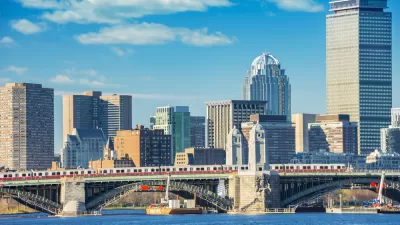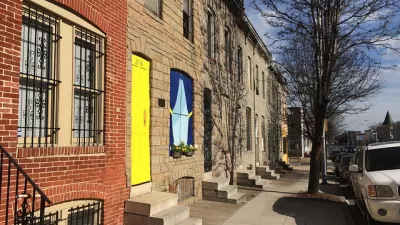Beginning this week, the city of Boston will ask developers how they plan to include women and minorities as workers and investors when putting city-owned real estate out for bid.

To address "persistent criticism" that lower-income, non-white neighborhoods are being denied the benefits of recent construction in Boston, the city is debuting a new process in which developers seeking to build on city-owned sites will be queried on their inclusion commitments.
Tim Logan writes, "When putting city-owned real estate out for bid, city agencies will now specifically ask developers how they will work to include minority workers, professional-service firms, and investors in their project, and how they'd address the risk of residents, and neighbors, being priced out of their buildings."
Last year, City Council members Ayanna Pressley and Michelle Wu "spearheaded an ordinance that calls for similar diversity plans on city contracts and construction projects." Now those guidelines will apply to a variety of real estate sites the city plans to sell.
The new rules only apply to city-owned land, not land owned by state agencies or privately-held sites. But officials like economic development director John Barros hope a broader conversation will emerge. "This is about where the City of Boston is going, and how we do business. We're saying this matters," he said.
FULL STORY: Boston to ask developers about their inclusion of minority and women workers, investors

Planetizen Federal Action Tracker
A weekly monitor of how Trump’s orders and actions are impacting planners and planning in America.

Maui's Vacation Rental Debate Turns Ugly
Verbal attacks, misinformation campaigns and fistfights plague a high-stakes debate to convert thousands of vacation rentals into long-term housing.

San Francisco Suspends Traffic Calming Amidst Record Deaths
Citing “a challenging fiscal landscape,” the city will cease the program on the heels of 42 traffic deaths, including 24 pedestrians.

Defunct Pittsburgh Power Plant to Become Residential Tower
A decommissioned steam heat plant will be redeveloped into almost 100 affordable housing units.

Trump Prompts Restructuring of Transportation Research Board in “Unprecedented Overreach”
The TRB has eliminated more than half of its committees including those focused on climate, equity, and cities.

Amtrak Rolls Out New Orleans to Alabama “Mardi Gras” Train
The new service will operate morning and evening departures between Mobile and New Orleans.
Urban Design for Planners 1: Software Tools
This six-course series explores essential urban design concepts using open source software and equips planners with the tools they need to participate fully in the urban design process.
Planning for Universal Design
Learn the tools for implementing Universal Design in planning regulations.
Heyer Gruel & Associates PA
JM Goldson LLC
Custer County Colorado
City of Camden Redevelopment Agency
City of Astoria
Transportation Research & Education Center (TREC) at Portland State University
Jefferson Parish Government
Camden Redevelopment Agency
City of Claremont





























